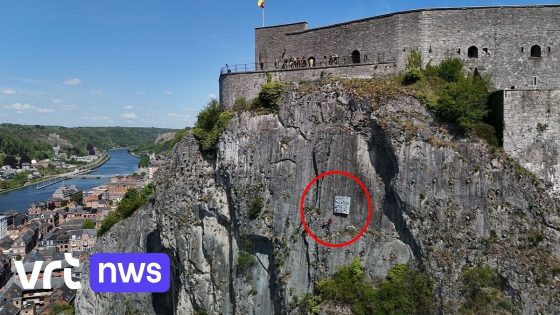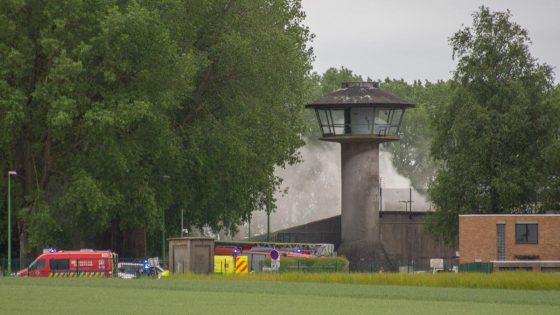A tense standoff is unfolding in Dinant, Belgium, involving a man occupying an illegal residence. Local authorities, including police, firefighters, and social services, have been attempting to resolve the situation peacefully. The incident, ongoing as of 2025-05-11 00:32:00, has drawn significant attention due to the occupant’s refusal to cooperate despite multiple intervention efforts.
- Authorities attempted to reason with the individual
- Police and fire brigade involved in intervention
- Individual demands exceptional permission from the king
- Provided food, water, and escape rope
- Residence declared illegal by the court
- Officials refuse to yield to blackmail
Mayor Richard Fournaux has confirmed that negotiators from the federal police and an intervention group were deployed, but the individual remains unyielding. He claims he will continue his protest until he receives a special permit from the king, to whom he has directly appealed. The authorities have provided basic necessities like food, water, and even a rope for a safe exit, yet no progress has been made.
What are the implications for local governance and public safety in such a case? How can authorities balance legal enforcement with humanitarian concerns? These questions highlight the complexities faced by Belgian officials in managing similar incidents.
This standoff raises important points about law enforcement and community safety:
- Authorities must uphold court decisions without yielding to pressure tactics.
- Negotiation efforts show commitment to peaceful resolution.
- Providing basic needs reflects humanitarian responsibility.
- Public safety remains a priority amid unresolved disputes.
As the situation develops, local authorities and citizens alike will watch closely. Will the occupant eventually comply, or will the standoff escalate further? The coming days will be critical in determining the outcome and setting precedents for similar cases across Belgium.































